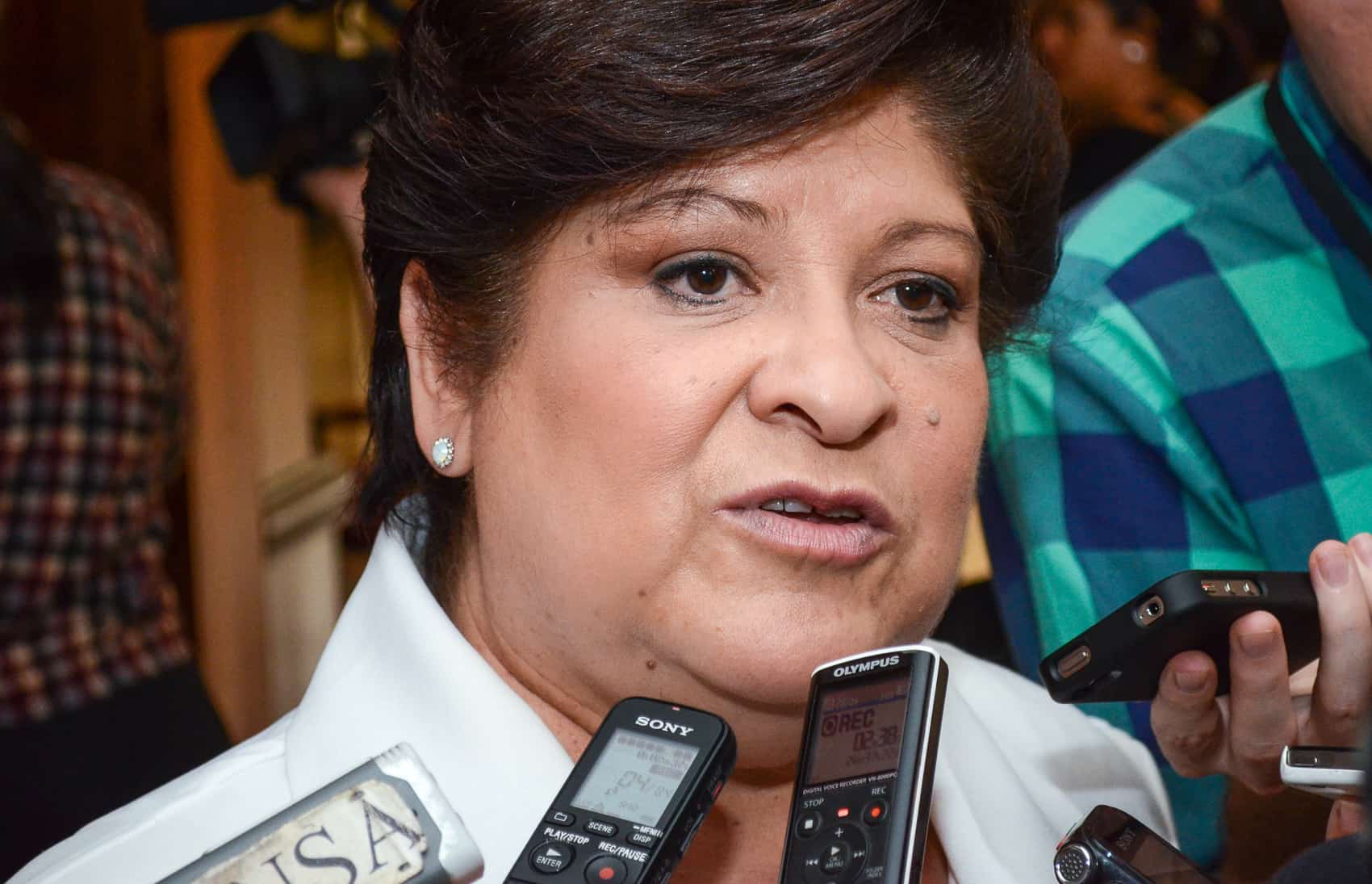Costa Rican Health Minister Daisy Corrales is at risk of having her medical license suspended in an ongoing case brought by a citizen to the country’s Doctors and Surgeons Association, according to documents obtained by The Tico Times.
The case, initially brought forth in late February and opened by the association in July, revolves around President Laura Chinchilla’s decision to declare the Central American Bioethics Congress, held here in March, of “national public interest,” with the necessary support of Corrales.
Among the guest speakers for the event was Spanish doctor Jokin de Irala, known for his conferences and workshops where he claims to “cure” homosexuality. His attendance stirred controversy among supporters of gay rights in Costa Rica.
The public interest decree, signed by both Chinchilla and Corrales on Nov. 26, 2012, gave event organizers access to state resources and allowed public officials to attend. But it wasn’t until that decree was published in the government newspaper, La Gaceta, on Feb. 7, 2013, that citizens took notice.
One LGBT activist, Yashin Castrillo, challenged the move and took the case to the Constitutional Chamber of the Supreme Court, or Sala IV, days later. The court ruled in his favor and annulled the event’s “public interest” status.
“Health Minister Daisy Corrales said publicly that she does not support any therapy or treatment for curing something like homosexuality since it is not a disease,” states the court’s ruling, issued March 3 – just four days before the event was held.
Yet according to Luis Álvarez, the complainant in the doctors association case, Corrales signed the decree, possibly infringing the country’s medical code of ethics, according to documents submitted to the association’s Ethics Tribunal.
Article 27 of the medical ethics code states that in order to be licensed to practice medicine, all doctors “must oppose and not practice discrimination or undignified treatment of any human being, regardless of age, gender, ethnicity, disability in any form, political leaning, religion, nationality, imprisonment, sexual orientation or economic standing.”
Penalties that Corrales could face if found guilty of violating the ethics code range from a verbal warning to the temporary suspension of her professional license.
Stalling?
Correspondence between Álvarez, the Ethics Tribunal and Corrales show that the first hearing on the case, scheduled for Nov. 7, was postponed.
The documents show that Corrales submitted a letter saying she had not received notification of the hearing at a fax number she had indicated in her last correspondence. The tribunal then postponed the hearing until further notice.
Citing the ongoing case, Corrales would not comment for this story.
“I expect the Doctors and Surgeons Association to correct their mistake and notify us as soon as possible of a new date for a hearing, which I estimate could be in late December or early January,” Álvarez said.
This is not the first time Álvarez, a 49-year-old attorney, has challenged the Chinchilla administration. Last year, he was one of two citizens who reported being blocked from the president’s official Facebook account. He took that case to the Sala IV and won.
Health minister says no ‘premeditation to cause harm’
Corrales submitted 15 pages of arguments to defend her position, saying she did not violate the ethics code that she’s bound to follow as a doctor.
“To commit a fault, such as discrimination or undignified treatment, just as when one commits a crime, premeditation to cause harm is required; a conscious action to hurt is needed, which, in this case, did not happen at any time,” she stated in a document submitted to the tribunal.
Chinchilla appointed Corrales as minister in August 2011 after her predecessor, María Luisa Ávila, resigned over a disagreement with the president over how to handle the financial crisis at the country’s Social Security System.
In her two years in office, Corrales has faced several challenges, including a record number of dengue cases this summer and an ongoing epidemic of chronic kidney disease in the northwestern province of Guanacaste.
“I think it’s outrageous when a professional in the field of medical science lends his or her name to a legal act that favors an event … that clearly suggests [homosexuality] is a disease that can be cured,” Álvarez said.






